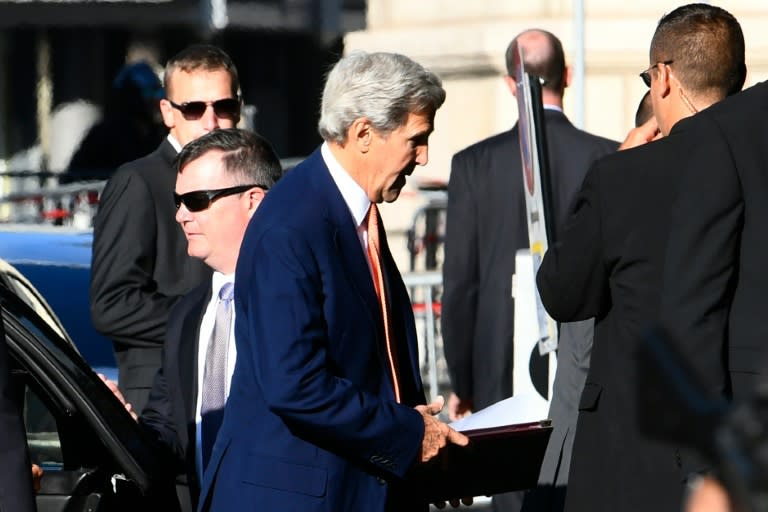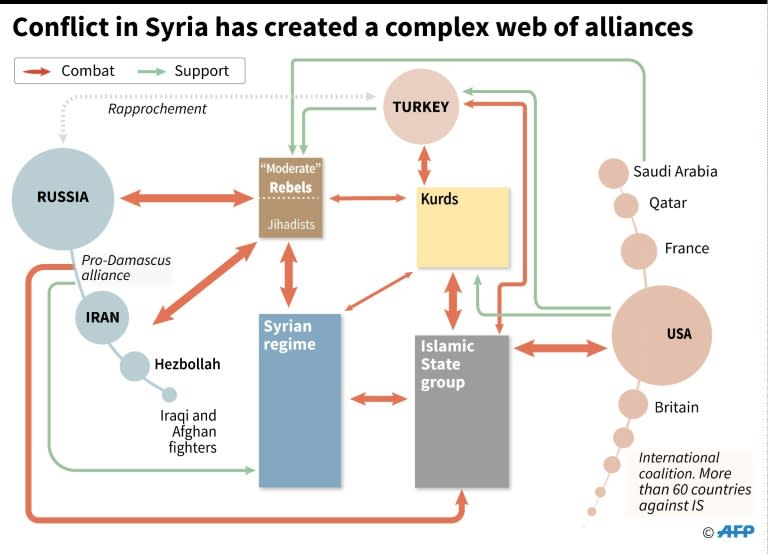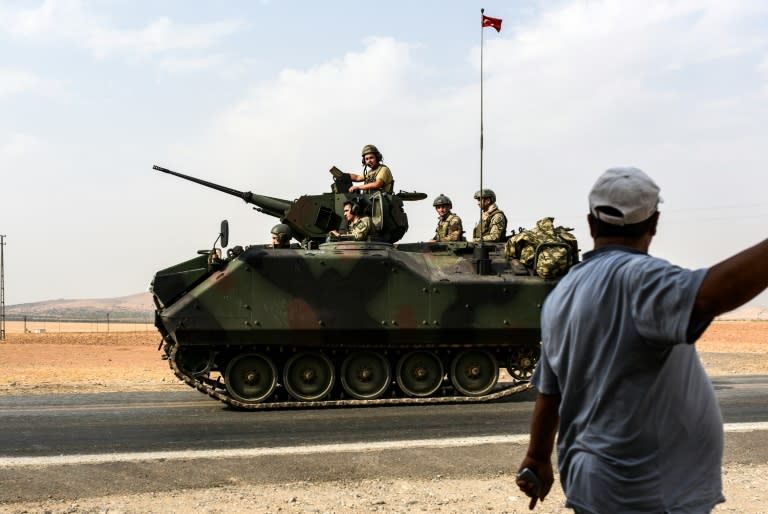Kerry, Lavrov hold marathon Syria talks
US Secretary of State John Kerry and Russian Foreign Minister Sergei Lavrov held marathon talks in Geneva on Friday for an expected push towards resuming peace talks for war-ravaged Syria. The two diplomats met on and off for nearly 12 hours at a luxury hotel on the shores of Lake Geneva, taking sporadic breaks to consult with their teams before resuming the meet. They were briefly joined by the UN envoy for Syria, Staffan de Mistura, who had said Thursday the talks would be "important", and could help his drive to revive the stalled negotiations. Asked during a break how the meeting was proceeding, Lavrov responded: "Excellent". After a long day spent mostly behind closed doors, it was unclear whether anything had been agreed or if the two powers were readying to make an announcement about a possible path forward to ease the devastating crisis in Syria. De Mistura had voiced hope of bringing the warring parties back to the negotiating table by the end of August, but that deadline looks sure to slip in the face of intense fighting on the ground. Successive rounds of international negotiations have failed to end a conflict that has killed more than 290,000 people and forced millions from their homes in more than five years. Moscow and Washington support opposite sides in the war, which erupted in March 2011 after President Bashar al-Assad unleashed a brutal crackdown against a pro-democracy revolt. Russia is one of Assad's most important international backers while the US supports Syria's main opposition alliance and some rebels. - Aid to Aleppo - Friday's meeting came as the conflict became further complicated by Ankara's decision this week to send tanks into Syria to back rebel fighters. The Turkish-backed fighters have seized the Syrian border town of Jarabulus from the Islamic State (IS) group, while Turkish forces have also shelled a Syrian Kurdish militia that it considers to be a terror group. Ankara's hostility to the YPG however also puts it at loggerheads with its NATO ally the United States, which works with the group on the ground in the fight against IS. The Russian air force has meanwhile been carrying out air strikes in Syria since September last year, claiming it only targets extremists. The West and the Syrian opposition have accused it of hitting civilian targets in rebel-held areas -- claims that Moscow denies. But the US and Russia have a common foe in IS, and they have been in contact on efforts to establish military cooperation against the jihadists. The two countries co-chair a UN-backed humanitarian taskforce for Syria, which has been struggling to ensure access for desperately-needed aid across the country. The UN on Friday described the lack of humanitarian access to Syria's besieged areas as "wholly unacceptable", saying just one aid convoy had completed deliveries this month. According to the United Nations, nearly 600,000 live under siege across Syria, most surrounded by government forces, although rebels and Islamists also use the tactic. Syria's battered second city Aleppo, which is divided between government and opposition control but surrounded by loyalist forces, has emerged as a top concern. Russia last week gave its blessing to a long-demanded 48-hour pause in fighting in the northern city to allow in aid, but de Mistura on Thursday accused other unspecified parties of still dragging their feet. There was hope that Friday's talks between Kerry and Lavrov might help boost those efforts. Meanwhile, Turkish President Recep Tayyip Erdogan and his Russian counterpart Vladimir Putin agreed that they would together push for aid to reach Aleppo. In telephone talks "the two leaders... agreed to accelerate efforts to ensure help reaches people in Aleppo," the state-run Anadolu news agency said, adding that Erdogan briefed Putin on the current Turkish operation inside Syria.





